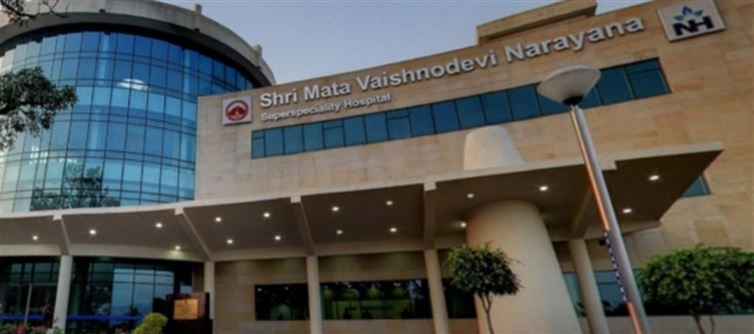
When Faith Funds, but Faithful Are Forgotten
For decades, millions of Hindu devotees have walked barefoot to the Vaishno Devi shrine, carrying offerings of gold, silver, and savings — not for personal gain, but in faith. That same faith helped build the Shri Mata vaishno devi Institute of Medical Excellence (SMVDIME) — a Rs 600 crore world-class medical institution, fully funded by the Shri Mata vaishno devi Shrine Board (SMVDSB).
But when the first MBBS admission list came out for the 2025-26 session, faith was met with disbelief. Out of 50 students, only 7 are Hindus — and just one Sikh. The rest, by demographic composition, don’t even represent the community whose faith and donations made this institute possible.
It’s a story of faith betrayed, representation erased, and silence institutionalized — all under the shadow of India’s holiest mountain.
A Temple’s Treasure, A Nation’s Question
The Shri Mata vaishno devi Shrine Board is not a government enterprise. It is an autonomous trust, sustained almost entirely by Hindu devotees’ offerings — donations that range from coins and jewelry to estates and corporate endowments.
This isn’t taxpayer money. It’s devotee money — sacred contributions made at one of Hinduism’s most revered pilgrimage sites. When the Board announced plans to build a state-of-the-art medical college in Reasi, it was hailed as a shining example of spiritual philanthropy — devotion turned into development.
But the latest admissions list has left that faith fractured. If a medical institute created by Hindu donations doesn’t ensure fair representation of Hindu students, the obvious question arises:
Who is this institution really for?
The Numbers That Tell a Story of Displacement
The figures are not just statistics — they are an indictment.
Out of 50 MBBS seats, only 7 belong to Hindu students, and 1 to a Sikh. The rest come from communities that make up the majority of Jammu & Kashmir’s population, where Hindus are now a marginalised minority — just 28.44% of the total.
That alone would raise eyebrows. But place it against the backdrop of a region scarred by Kashmiri Hindu exodus, mass killings, and decades of persecution, and it becomes something far darker:
A continuation of marginalization under a different name.
The question that many are now asking is simple:
How can a Hindu-funded, Hindu-administered institution end up discriminating against the very people who built it?
Legal Lines and Moral Loopholes
Let’s be clear — India’s Constitution forbids reservation purely on religious grounds. There are minority sub-quotas within the OBC or EWS categories in some states. Still, Jammu & kashmir has no such provision, and SMVDIME does not fall under any government minority reservation rule.
Which makes this situation even more perplexing.
If there is no constitutional mandate to skew representation, and the funding is entirely from Hindu devotees’ money, then what explains such a disproportionate outcome?
Critics argue this isn’t a legal loophole — it’s a moral failure. A failure of oversight by those managing an institution built on faith but seemingly run with political correctness at the cost of fairness.
The Silent Dispossession of Devotion
Faith-based institutions aren’t supposed to discriminate — but they are supposed to honour their community roots. SMVDIME’s founding spirit was clear: to serve Jammu’s people, especially the pilgrims’ children whose offerings made it possible.
But somewhere between policy paperwork and political optics, that purpose was lost.
When a Hindu-funded institution ends up excluding Hindu students, it’s not just about admissions — it’s about identity. It’s about a community that built something with faith, only to find itself written out of its own story.
And in a region where Hindus have already endured exodus, erasure, and existential threat, this feels less like an oversight — and more like a continuation of quiet cultural displacement.
The Cost of Faith — When Donations Lose Direction
Every rupee offered at the vaishno devi temple is intended to build schools, hospitals, or social projects that uplift society, while staying true to the shrine’s sanctity. But when the outcome of that charity fails the very community that funds it, it becomes philanthropy without accountability.
Devotees didn’t donate for exclusion.
They donated for empowerment.
And today, they have every right to ask where their faith, money, and trust have gone.
The Bottom Line: Faith Doesn’t Need Apology — It Needs Accountability
No one is asking for communal quotas or exclusionary policies. What’s being demanded is basic fairness — that a Hindu-funded, Hindu-administered institute should not become a symbol of Hindu underrepresentation.
When faith builds, but the faithful are forgotten, that’s not secularism — that’s systemic hypocrisy.
If the Shri Mata vaishno devi Shrine Board wants to restore trust, it must do more than issue press releases. It must audit its admissions, reaffirm its founding intent, and ensure that devotion is never taken for granted again.




 click and follow Indiaherald WhatsApp channel
click and follow Indiaherald WhatsApp channel